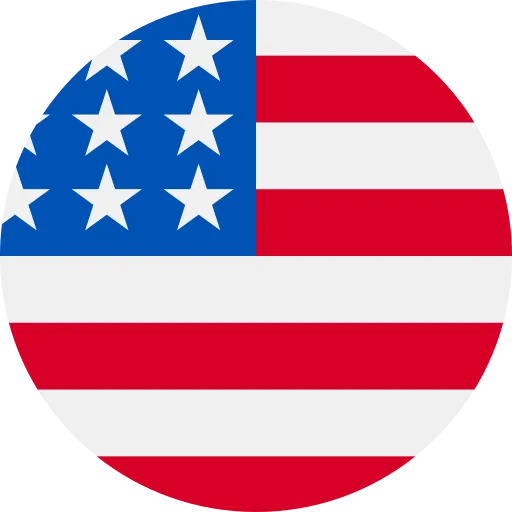Tevya Finger and Dan Langer from Luxury Brand Partners are two names known by many in the industry as entrepreneurs of nuances within the world of beauty.
Not hairdressers themselves, these two talented businessmen have excelled in the creation, not of beauty, but brands that become financial successes and beloved beauty essentials to their consumers.
Their experiences have placed them at every position and led them to found or be involved in what is now Bumble, Becca, IGK, Oribe, R+Co, V76 by Vaughn, Pulp Riot and other numerous beauty brand successes. Dan is the Chief Marketing Officer and President of E-Commerce and Tev is Luxury Brand Partners’ CEO. Together, they spoke to us about the recent sale of Oribe, their founding brand in LBP, to Kao only a week ago!
They shared with us the journey from its inception, to what it will mean for the future of LBP. Tell us a bit about what motivated this exciting sale?
“You build a brand and you know that they’ll probably sell at some point in time, but you don’t think about it. You just do the best you can do, and create great education, build great products, and great relationships. But then, inevitably, at some point, if you do a good job specifically, someone will come along and want what you have. For us at Oribe, we’re going on our 10th year. This is happening in the 9th year plus some months. We had this partnership with Kao to Goldwell for the last four years, where we would promote their color and they would promote our headline. We got to know them and work together, and for four years, we never thought that they would be buying us or anything like that. But, what happens is if we start building something, it starts getting more and more popular, and the brand starts exploding and doing great. Kao is a multibillion dollar conglomerate. I think it made a lot of sense to them to buy as from their perspective. From our perspective, we knew that that inevitable day was going to come when you sell a brand. Of course, someone has to sell at a price that really makes sense to you, as well. We agreed on a range that we thought was a good price for everybody.
But, I would give the analogy, it’s kind of like if you bought a house or the land for $200,000, and you built a house for another 200,000 or 300,000, and you had a $500,000 valued home. If some neighbor came next to you and they really loved your house… And you decided you were going to live in this house forever, right? You love your house. It’s 500,000. You’re going to live in it forever. Then, some neighbor comes by and says, “I’m going to buy your house for 20 million.” You’re gone so fast out of that house your head is going to spin, most of the time. I think it was a similar scenario for us. Someone paid a lot of money for something that we absolutely loved and weren’t really wanting to sell, but you get a price and you have to.
I think strategically for Kao, it actually makes a lot of sense. First of all, they’re a fantastic company. They really are. Because we got to know them for four, almost five years now. They’re just quality people, quality company, and they’re really good at what they do. For us, it was an easy decision, because you really like the people that you’re dealing with, plus they paid a price that made sense to us. Also, our credo at LBP is to build brands up and eventually exit them. From a business perspective, it’s our business model, as well.“
I know when we spoke about this idea of creative ADHD, and how you get excited in the formation of companies, but close interest once they’re successful and running on their own. So, what was it about the particular state of Oribe that convinced you this was the right time for this move?
“As an example, LBP sold a brand in last December actually, we sold a brand called Becca, which is the makeup brand. That was a great brand. We owned that brand for probably four to five years, but that brand was about 12 years old before we owned it. Five years is probably the shortest we ever owned something, because it takes years and years to build a brand. There’s kind of a magic mark; a brand gets to 10 years old or you start to get to 100 million dollars of sales in revenue, there’s certain things that bigger companies are geared for when you get big like that.
I’ll give you an example, international distribution. For us, we’re putting all… In Oribe, we put most of our energy into domestic distribution, and a little bit of energy into international. We have some international business. But, the big companies, like Kao, L’Oréal, Estee Lauder, Henkel… any of the big conglomerates that buy brands, they’re like massive machines that have distribution all over the world.
We’re good at taking an idea, taking an artist, connecting the idea, building it, talking through what would make this brand amazing. We’re really branding people that also understand salon distribution, and now maybe Ulta and Sephora and things like that, as well. We take it from A to B. Now, someone comes in and takes it from B to C. That’s kind of how it works.
There was nothing about Oribe that made us think of a point in time want to sell. Kao approached us. With Becca what we did was we actually hired banks to go out and shop it around. That’s normally how you do it when you’re going to sell a brand. We didn’t do that. Kao, because we already knew them, they said, “Hey, we’d be interested in buying the brand.” So, it started from a conversation. That was with Cory Couts, Global President of Kao Salon Division.“
I also remember you telling me a little bit about starting the company with Oribe Canales and Daniel Kaner. I know it was not easy. Do you have any sentimental or personal feelings about the sale of Oribe?
“Yeah, one thing I’ll tell you, every brand is difficult. When we started Bumble, that was not an easy thing. It was very, very difficult. Then our building burnt down, and that was like a new beginning for us. I think business is hard in general. I think it looks easy sometimes from the outside, but on the inside, it’s always a struggle when you’re trying to take a little bit of money that you raise from investors, or you put your own money in and you put it at risk, and then you try and build these brands up to something really successful.
The first thing you think when you build a brand is not as much, “How much money can I make?” but, “Can I keep it alive?” I think that’s more of where an entrepreneur’s head is when you’re building a brand. “Let me just get to the point where I break even.”
Now, we started Oribe, like as we were talking about, end of 2007, 2008, and really launched the brand in 2009 where we started selling. That was, obviously, a terrible time with the market and everything, especially when you’re doing a luxury brand with expensive pricing and everybody is cutting back. People were traveling less, and going to the hair salons maybe every eight weeks instead of five weeks. It was a very bad moment in our history as a country from the recession perspective.
That was really a difficult time, but the sentimental part of it is, in a weird way, I actually really enjoyed it, because we really all came together. For the core company: I really think of Dan Langer, and Jonathan Sharp, and Todd Hildum, and Dan Kaner, of course, and Oribe. There’s that core team that jumped in there right from the beginning and started it. Yes, Oribe, Dan, and myself, Dan Kaner, we had the notion to talk about forming a company, and then form the company, and then very shortly after it was formed, everybody jumped on to run it. The sentimental part for me was how incredibly difficult it was, but how we banded together. It’s funny, it was more enjoyable to me than it gets towards the end where it is now when everything is functioning and working like a machine. I have more memories from the early time than I do of the later time. See what I’m saying?“
I know Daniel Kaner is going to transition to Kao. What are, as a partner, as a friendship, what are some things you’re going to miss about working with him?
“Well, Dan is an amazing business person. We’ve both been co-partners of Oribe since the beginning. It’s running so smoothly now that he’s going to be the only president of the brand and really spearhead it into the future. I think he’ll do an incredible job. Dan’s always done a great job. We’ve worked together since the Bumble days. Yeah, I know. That’s the hardest part of these things is to break apart a little bit and it just happens. Like Dan Langer, we’ve also worked since the Bumble days together. It’s one of those things; you don’t ever plan it like who’s going to go in a sale. It just never happens like that. But, because I was running LBP, I was the president and CEO of LBP; and we were both co-presidents of Oribe; in fact, up until yesterday we were both the co-presidents of Oribe; it just makes sense that he would go with the brand, because it needs somebody. It’s one of those things that happens and it kind of sucks. From a friendship perspective, I’m hoping I always have a friendship with Dan forever.
Good friendships, the truth is, they kind of supersede time and quantity in my opinion. I have some friends that I speak to once. They’re such old friends. They know me so well from childhood that we speak maybe once a year, and the minute we get on the phone, it’s as if we speak every day. That to me is what a good friendship is. It’s not that you have to see the person every day and spend tons of time with them, as well. It could be. Either way works. Even Bumble, I still see Bumble out there, and every time I see it, I remember all the stuff that I did with that brand. I’m sure Dan Langer and Daniel Kaner feel the same way.
I think part of this was we felt that Kao was such a right fit for Oribe. It’s a brand that we cared about, a brand that we love, a brand that we built, and we wanted to make sure that we found the perfect place for it to grow to the next part of its journey.”
Okay, and you guys envision a good future? Because as the core team, you have a special vision when it comes to growth of the brand and seeing things where other people don’t see them.
“It’s interesting. You never know what the buyer, in this case Kao, what they’re doing to do with the brand. I don’t think they’re going to drastically change anything. Oribe right now is a winning brand with a winning strategy and a winning team, so I wouldn’t change a thing about it, and I don’t think that they plan on changing anything either, which is unusual, because sometimes conglomerates will buy a brand and they do change everything, but I think history has proven now that that doesn’t always work so well.
I think Kao is super intelligent, and I think they are going to let the brand really operate as their own. If they do that, then Dan and the team that’s there are going to innovate and always be coming up with new stuff. This is going to be one of the rare cases where I think the brand continues to soar and do better and better. I really think that.
For us at LBP now that we’re exiting the brand, to your point, we try and think… “Where is the market going to be in five to 10 years?” You start a brand, you’ve got to build it, which takes a couple years. You’ve got to raise money, have a business plan, build the brand, and then that first couple years, your sales are tiny. You have to envision where’s that market going to be in five years from now, and that’s when we want to be kind of running at that point. So, when you see some of the LBP brands we have now, they might not make sense to a lot of people, but we look at the market and say, “Alright, well, everything we’ve built we think makes a lot of sense down the road.”
And I’ll be honest, that’s why I think people constantly buy our brands. That’s why Bumble, and Becca, and Oribe. I guarantee some of the other brands we have in our roster will be monstrous, big brands down the road.“
Oribe was for the luxury market, for the luxury loving client; but then you created R+Co for those in a smaller price bracket; and then you created IGK for the people that were a little wild; and then Smith and Cult was for the luxury nails. But, now that Oribe is gone, is there a void? Or do you plan to continue with the brands you see now because they’re strong?
“You’re right about everything you just said. There’s some nuances inside of there, as well, because then there’s salon channel versus Sephora channel. There’s exactly the way you kind of painted it, and then there’s the channels. There’s nuances inside of there, and that all plays into the strategy of how we look at stuff.
As far as the void in luxury, I think Oribe fills the void and is always going to fill the void. There aren’t a lot of things at the very high end. But, you also have to look at where you think, and that was the thing I was talking about: Where are people going to be in five years from now? You also have to look at future and think down the road.
And, you have to look at things that are outside of beauty. Why do people love cryptocurrency right now? Why is that so popular around the world? Because people are… And why was that 1% movement so big?
Right? Then you have to think of the technology side of the Internet and how everyone is so connected right now. I think that people want really great products, but they might not want to pay as much anymore. That’s the trend, and I think you’re going to see that a lot more down the road than you’re even seeing right now. I think cryptocurrency is an example of why people bypass banking systems, and pay much lower fees, and have instant control of their money. That’s why things are exploding, because the population of the world is going at such an alarming speed, but not everybody is a multimillionaire.
If you look at the brands we have right now, we don’t have very expensive stuff, but we don’t have any cheap stuff either. We’re right in that pocket. It doesn’t mean that there won’t be a gap we see in the future somewhere. We do have some things that we’re working on now. We can’t talk about them, because we want to surprise everybody, but we’ve got some things that maybe fit some other gaps later on.
I think IGK, to me, is going to be a really huge brand at Sephora, and ultimately Ulta and some other big places. Yeah. And I’ve got to tell you, the product itself is, from a technological perspective, like ingredients and what it does, absolutely phenomenal. If you look at trends, it used to be all about the baby boomers, right? That’s what everyone focused on, but we’ve got to start looking at the millennials. The millennials and younger, that’s what the world is going to be in 15 years from now. We’re constantly looking at that. That’s this little insight into how we kind of strategize and think about stuff.“
Okay, that’s what you’re studying for the existing portfolios within LBP?
“We love building brands, and we love building brands that haven’t existed in concept before. I think that’s what LBP is great at, identifying things that haven’t existed before and innovation, and working with artists to create things that are special in that perspective and has unique qualities. I think that’s why they resonate so well with professionals and consumers is because there’s such an authenticity to them, because they are all originals, and all from the minds of artists.
To Dan’s point, as well, people thought we were nuts when we did our Late Night Show. It wasn’t that we did a late night show just to like have fun. Having fun is absolutely on the top of our list, but that was a way for us to meet every player in the hair business almost like they didn’t know they were on Shark Tank. We were not just interviewing them for fun. We were interviewing them to say, “Who’s the talent that maybe we can build future brands around?” because to Dan’s point, we love building artist driven brands. That’s our kind of M-O.
The IGK guys were all interviewed on the show. That’s how we got to know them and then season them. Everybody, Howard McLaren from R+Co, Dina from Smith and Cult, etc.
Then, a lot of the new brands that we’re considering doing right now are all people we’ve interviewed for Late Night With Tev Finger. So the Pulp Riot people, Alexis and David, that started from a relationship, and then interviewing them, and then talking about business, and then launching a brand together. That show is much more than what it appears, but we also want to make it fun for the stylists and everything, so they enjoy it.“
That’s a fascinating way to do some A and R, and at the same time, now that we’re on the topic, Late Night with Tev Finger, what do you have planned in the future for that?
“I think there’s still a lot of people to interview. I can see at least a couple more seasons where we go through everything. I almost never want to give it up, because it’s like our lifeline of new product development. Where it’s connecting us to ideas. But, I am changing it for next year, we’re going to have other people doing the interviews, not just me. We’re going to switch the name. We’re trying to play around with some of the words. What I would love to see is as seasons progress to maybe get away from me being the host and have an army of hosts exposing everyone in the industry to what’s going on, for free, so everyone can get to know everybody. That’s what we’re mulling around right now is a little bit of a change. It also keeps it more exciting. Nobody wants to listen to me for season after season. I can’t even listen to myself. So, we’ll put some new blood in there, too, which will be fun.“
Does the sale of Oribe also affect, or change, or motivate special projects like Idealogue in the future?
“It definitely does. It definitely changes and motivates new stuff. We’re actually having a think tank session in January with all of our seamless senior leadership teams to think about, “Okay, how does the sale of Oribe affect what we want to do? And, what new things do we want to do? And, do they work together in that fashion?” You’re spot on. That’s exactly where we are right now as a company and what we’re thinking about. Then, the pressure is on Dan and I, and Todd, and Johnny, and the rest of the whole team, the pressure is on all of us to create some great new content, or classes, or Idealogue type of things, or Front Row type events. We have to reinvent ourselves, because what happens, what I’ve noticed at least, is that we get copied a lot, so we have to always adapt. You have to keep adapting. You don’t want to be like everybody else.“








